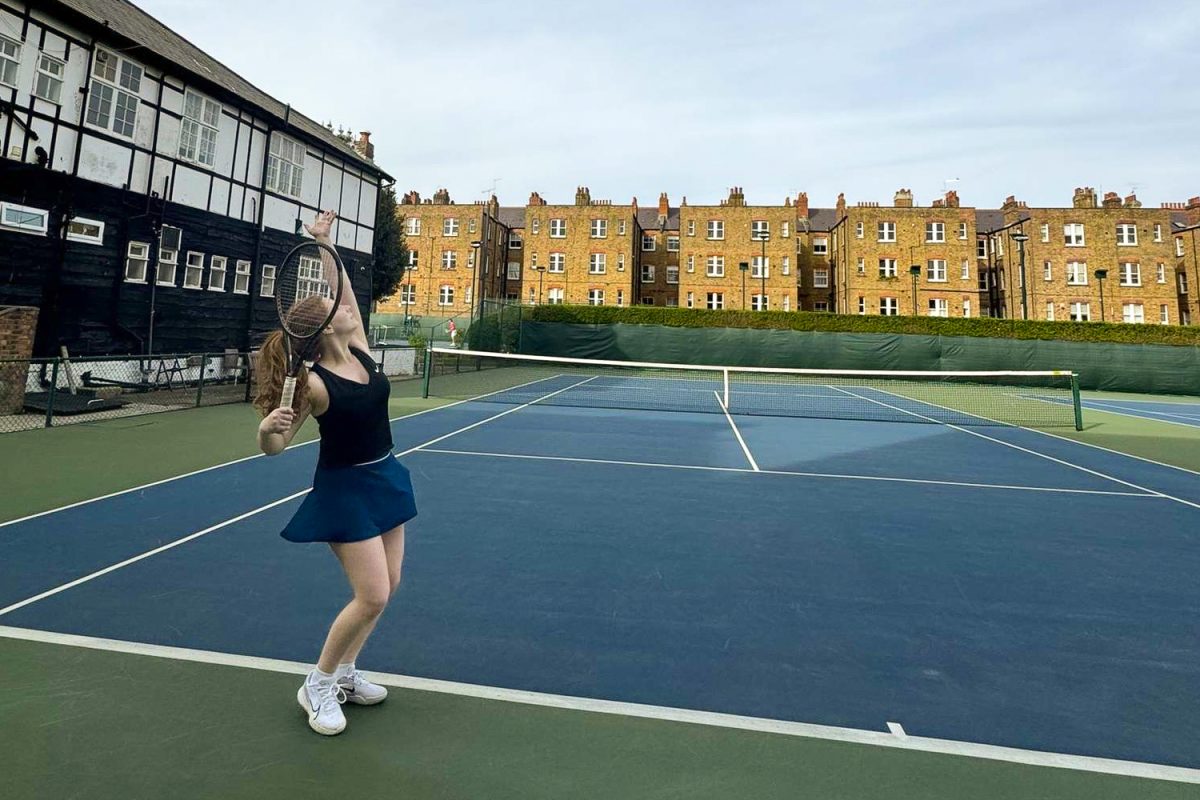A 14-year-old boy addresses the group before him, speaking in his mother tongue, Swahili, recounting his life story to the visitors at his orphanage.
He tells the group how when he was five, both his parents died as a result of their battle with HIV/AIDS. After their deaths, he lived alone in the streets, becoming a thief by necessity. Through his criminal involvement, he was also sucked into the local drug scene. And now, this boy who was robbed of his parents at such a young age, is also infected with HIV.
The child’s life changed when he joined Right To Play, a program that teaches important life lessons and develops basic skills, at a local orphanage. “He broke down after he’d finished [telling his story]. He said that he had no hope after he got infected with AIDS,” Will Conway (’14) said. Through the Right To Play initiative, the child found a guardian with whom he now lives.
Conway and three other High School students traveled to Dar es Salaam, Tanzania, in early October to experience first-hand the effect of the Right To Play programs. Joined by two Great Britain Olympic athletes, rower Mark Hunter and field hockey player Crista Cullen, as well as Right To Play National Director for the UK Nick Smith, the four students visited schools and community centers where Right To Play had a preexisting presence.
“One of the leaders said this throughout the trip that you really don’t know Right To Play until you’ve played the games,” Erica Rawald (’14) said. “So that was what we did.”
From adaptations of the classic “Stuck in the Mud,” modified to educate the kids about malaria, to fun with song and dance, the students at the Right To Play programs taught the visitors their specially tailored games.
The program is intertwined with the the local schools’ curriculum. Right To Play trains a couple of teachers at each school, teaching them the games and how to incorporate them into the school day. Those teachers then train other teachers, who then play the games with the students during their breaks, play time or in physical education classes.
Each school has junior leaders, students who step up within the group to take on larger responsibility to lead and teach other students their age and younger. “There’s a lot of leadership involved with Right To Play, and they really encourage that,” Rawald said.
For Conway and Rawald, the trip was a success. “You could see the smiles and the laughter,” Conway said. By observing and getting involved in many Right To Play programs, the group saw firsthand the impact that their games could have on youth in Tanzania.
Conway said that Right To Play’s positive influence was best exemplified through an exponential increase in attendance rates at a local school after Right To Play became involved. Before the Right To Play program had been introduced to the school, attendance rates were at a mere 55 percent; however, after the inauguration of the initiatives, attendance levels skyrocketed to 95 percent.
According to the organization’s website, the Right To Play programs report an average of 93 percent increase in self-esteem and 93 percent increase in strong leadership skills. The programs, which also educate children about health and hygiene, also report that 92 percent of children in the program know ways of preventing HIV from sexual transmission versus 50 percent of children not in the program.
“It encourages kids to stay in school; it’s more fun, it’s encouraging and they have a better relationship with their teachers and the other students,” Conway said. “A lot of kids are dropping out [of school] because they have to support a family, or because they don’t have the means to get to school, or get a uniform. The longer the kids can stay in school, the better.”
Rawald remembers a particular moment she experienced on the trip. One community center the group visited consisted of a single room. The visitors played with the students outside. “There was this one game we played that’s kind of like the hokey pokey. You have to do all these dance moves,” she said. When she saw one shy child sitting on the sidelines, Rawald brought her into the center of the circle and started dancing. After they finished the dance, the two girls went back outside the circle.
“Then, five minutes later, she tapped on me. She pointed to me, and going back into the circle. She wanted to go back in,” Rawald said, pointing out how a simple game can have a positive impact on a child. “You really saw her come out of her shell. She wanted to come out and she was confident. It was so adorable.”
svena_bhasin@asl.org




